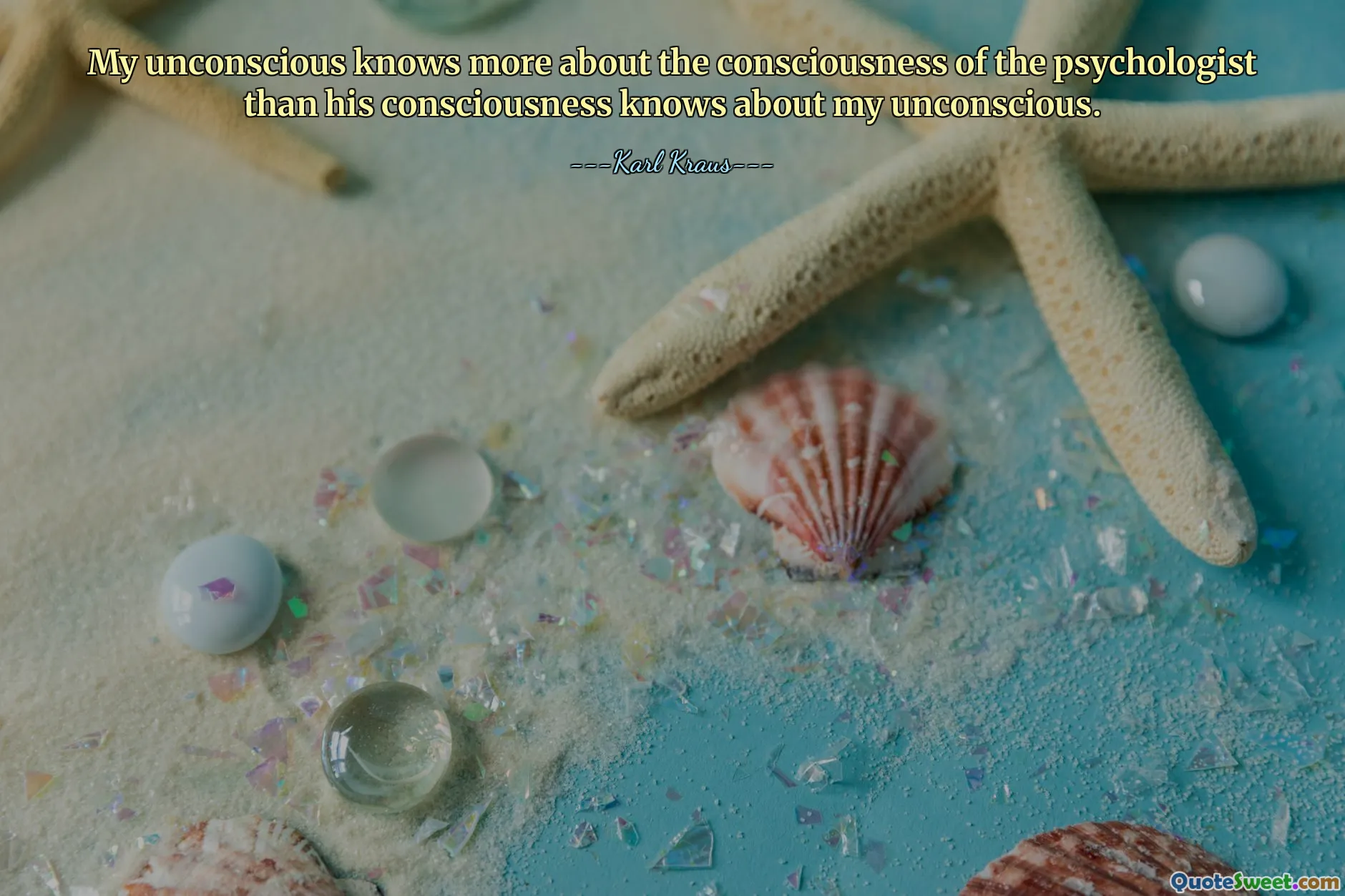
My unconscious knows more about the consciousness of the psychologist than his consciousness knows about my unconscious.
This quote delves into the intricate layers of the human mind and the often unseen dynamics at play during psychological interactions. It highlights the idea that our unconscious mind, which houses our deepest fears, desires, and biases, operates on a level beyond our conscious awareness. When engaging with a psychologist, it suggests that the client's unconscious is inherently more knowledgeable about their true self than the psychologist's conscious perceptions or interpretations can grasp. The psychologist, despite their training and expertise, can never fully access the subconscious realities that influence behavior and decision-making.
This perspective raises important considerations about the limits of self-awareness and the interpretative nature of therapy. It acknowledges that much of what influences ouractions originates from unseen, unspoken parts of the mind—a realm only partially accessible through reflective or analytical processes. The quote also emphasizes the potential for misunderstandings or incomplete understandings in therapy, as the psychologist's conscious efforts to understand the patient may be superficial compared to the richness of the patient's unconscious.
Moreover, it invites a reflection on humility in psychological practice. Recognizing that our unconscious contains knowledge beyond conscious grasp encourages both clients and practitioners to accept the complexity and mystery inherent in the human psyche. It invites a sense of curiosity and respect for the subconscious, understanding that true self-awareness requires more than conscious effort; it demands trust, patience, and sometimes acceptance of what remains beneath the surface. In a broader sense, the quote underscores the importance of listening to the unspoken and trusting that the human mind holds depths that are often beyond immediate comprehension, waiting to be uncovered through careful exploration.
Overall, it is a reminder that much of human understanding and self-awareness resides in the unseen facets of our minds—facets that ultimately shape our perceptions, behaviors, and identities in ways that consciousness alone cannot fully grasp.






